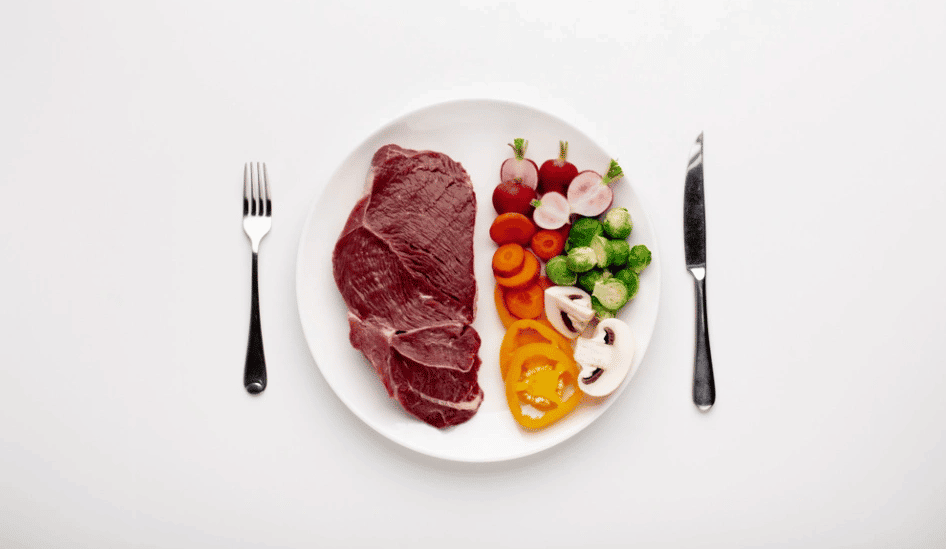In recent years, a lot has been said about the different types of diets and the advantages and disadvantages of each. But the main question that leaves most questions is which one is the healthiest.
In this content we will share with you some evidence about these diets so you can decide which diet you want to implement in your life and, above all, which option is the healthiest.
We’ll start with the main difference between each of the diets mentioned.
What’s the main difference between vegan, vegetarian and omnivorous diets?
The omnivorous diet is the best known diet nowadays, and the one that is followed by the majority of the world's population. In this diet, people consume foods from all food groups, including fish and meat.
In a middle space between the vegan and omnivorous diets is the vegetarian diet, which is a little more limited than the previous one, but not as much as the vegan diet. In this type of diet, people do not consume meat and fish.
And lastly, there is the vegan diet which excludes any animal food, not just meat and fish. That is, the diet does not include eggs, honey or dairy products. This is a diet with more limitations than the previous ones, which is why many people start the vegetarian diet before moving on to the vegan diet.
5 evidences about the vegan, vegetarian and omnivorous diets
Evidence 1: all diets can be healthy
This is a truth, after all, the most important thing is that there is a balance in the diet, and for this there must be good planning. Without such planning, any diet can become unhealthy.
But in general, vegan and vegetarian diets tend to be healthier simply because there is a regular intake of fruits and vegetables.
Although the consumption of vegetables is more regular and there is no consumption of meat and fish (or any animal product in the case of vegans), the dishes are delicious! Vegan and vegetarian restaurants even have more and more variety of dishes.
If you have doubts, try the experience and visit our
vegan restaurant in Lisbon and give vegan food a chance.
Evidence 2: vegan and vegetarian diets have a higher consumption of fruits and vegetables
The basis of the diet is somewhat like this: fruit, vegetables, cereals, and other plant-based products, at least in the vegan diet. By contrast, in the omnivorous diet, vegetables are often forgotten or consumed in smaller quantities.
The vegetarian diet, although it has some animal food, also usually has a good consumption of plant products.
Evidence 3: The vegan diet has a lower fat intake
In addition to a higher consumption of plant-based products, it also has a lower consumption of fat that exist in meat.
Of course, meat does not have only negative points, as will be seen in the next point, but there are several studies that associate excessive meat consumption with some diseases. So, again, it is important to maintain a balance.
Evidence 4: Omnivorous diets provide needed nutrients more easily
Meat is a
source of protein and vitamin B12 that must be replaced in vegan (mostly) and vegetarian diets by other ingredients. So far, so simple.
The problem happens when the proper amount is not consumed and causes imbalances in the body.
The best way to solve the problem is by making regular appointments with a nutritionist to ensure that you are consuming the necessary nutrients. Another way is to take vitamin supplements.
Evidence 5: both diets should avoid industrialized products
And, probably one of the most important points, industrialized products should be avoided on both diets.
If a person chooses a vegan diet, consumes more vegetables, and even exercises, but consumes a lot of industrialized products, he is putting his health at risk. These products should be avoided.
Some reasons why you should consider a vegan or vegetarian diet
Besides health issues, vegan and vegetarian diets also contribute to a decrease in animal husbandry for human consumption. In fact, a decrease in fish and meat consumption would already be a start for a bright future in this area.
And, of course, there is the issue of sustainability of the planet, as many resources are used to produce food for the omnivorous diet.
Of course, there are many other reasons, but concern for the animals, the environment, and their health are the main ones.
